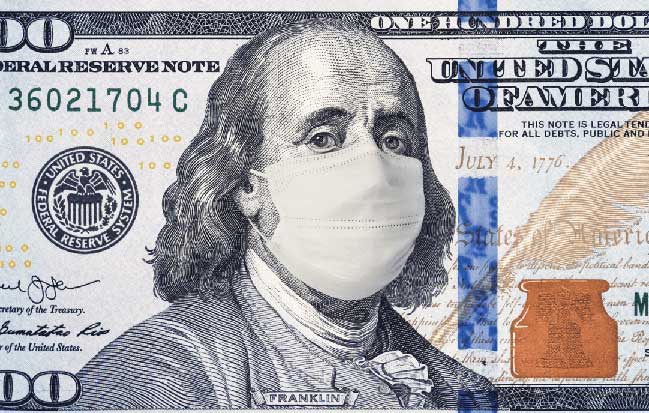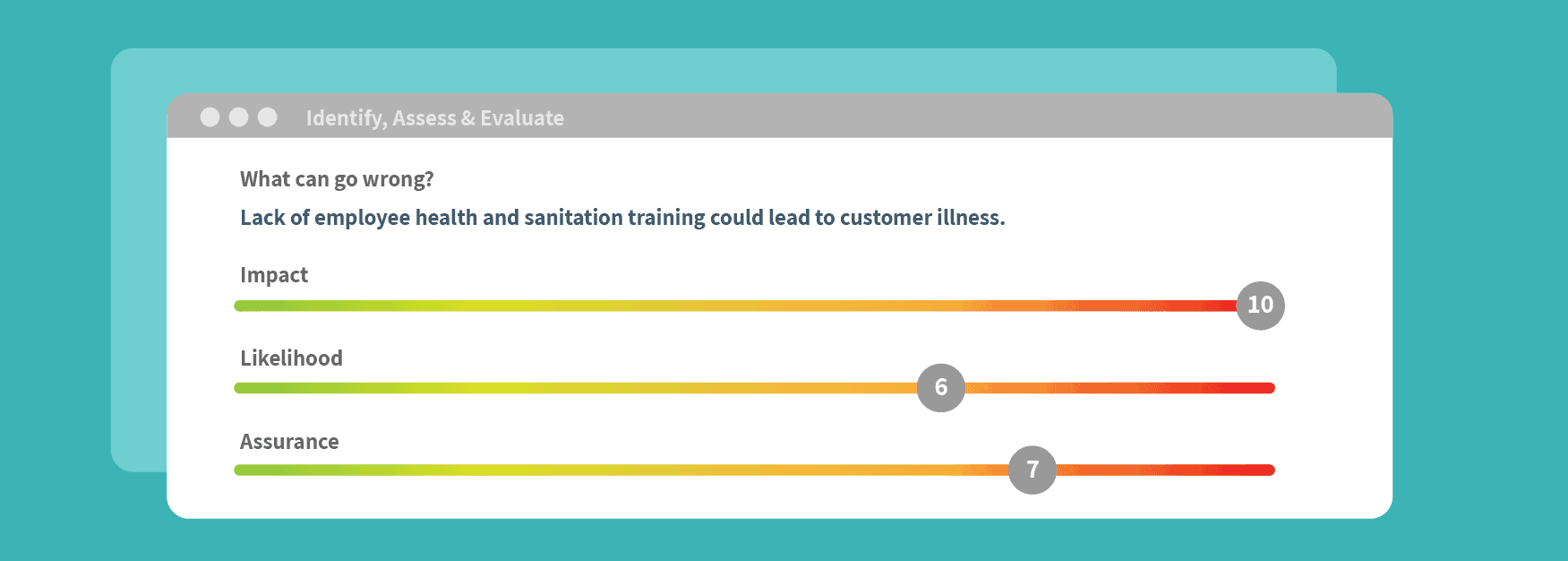Reopening the Economy: Employers Face a Tall Task in Ensuring Customer and Employee Safety During Coronavirus
Steven Minsky | May 20, 2020

Coronavirus employer precautions are essential to mitigate the risk of negligence
As companies across the country look ahead to the reopening of the economy, coronavirus employer precautions are coming into place as companies are developing risk management procedures to ensure employees can safely return to work.
Customer facing industries have the double task of ensuring both employee and customer safety in physical locations. This additional complexity exponentially increases the necessity of not only developing sound processes and procedures, but tracking and capturing documented evidence that they were followed.
Without this component, the evolving risks of re-opening will increase the likelihood of companies being found guilty of negligence. For example:
- Healthcare providers will open back up to non-life threatening procedures and appointments.
- Banks will look to re-open physical branches where there is frequently physical exchanging of currency and paperwork.
- Higher Education is a hotspot for physical contact with students sharing dormitory facilities, travel, libraries picking up and putting down items, cafeterias and classrooms may put each other as well as their teaching faculty and administrators at risk. This makes return to school planning important.
All industries share the common problem of liabilities rising from employee and customer lawsuits over negligence in preventing the spread of COVID-19.
Second wave risk mitigation is imperative.
When looking at public health, is your organization prepared to answer some key questions such as:
- How will your organization provide evidence that your policies and procedures are followed?
- How will your organization connect this evidence to your controls and risks and policies?
You have probably received dozens of helpful emails about all sorts of return to work suggestions.
- How will you identify the ones that address the risks specific to your organization?
- How will you prioritize how much investment you will make?
- How will you track these efforts over time and connect back to changes in legislation which is evolving every week to be able to clearly demonstrate you were following commercial reasonable practices based on the information available at that time?
Business Reopening Risks
Abundant evidence has proven that COVID-19 spreads effectively through touching common items and breathing common air in any confined space. With diners sitting inside a restaurant for a sustained period of time, air circulation systems will carry germs far beyond the 6 foot mark. If restaurants rush to re-open without re-imagining their business models and ensuring a robust risk management program backed by automated evidence capturing is in place, it is very possible that they could find themselves at the center of a negligence controversy.
Prior to COVID-19, we covered the Chipotle scandal and their pattern of negligence since 2016; they were recently fined $25 million for their role in 1,100 customers falling ill.
You may think, well how does this apply to us, we are not a restaurant?
However with COVID-19, all organizations are suddenly under obligation for public health and safety for the air in your facilities and the sanitation of anything a customer or employee could touch. Businesses returning to work while attempting to address these issues may create new one through discrimination or other unlawful employment practices, invasion of privacy, and failure to comply with workplace safety requirements. Similarly, customers could unleash a number of common law tort and statutory claims against businesses should they contract COVID-19 from them.
The financial harm to businesses could be especially severe because many general liability insurance policies contain exclusions for liabilities related to infectious diseases.
Coronavirus Reopening Challenges
Let’s look at a case study precedent of a pre COVID-19 business with a infectious disease risk management negligence problem.
In this example, Chipotle admitted to a pattern of “store-level” negligence in risk management that included failed “exclusion of restaurant employees who were sick or recently had been sick, as well as a failure by restaurant employees to hold food at appropriate temperatures to prevent and control for the growth of foodborne pathogens,” Negligence in risk management has both serious financial and PR implications. The fine they incurred is one part, but add to that the loss of 3 Years’ of Earnings and civil lawsuits for “quality controls being inadequate to safeguard consumer and employee health” and class-action lawsuits from investors claiming they should not be held liable for losses due to Chipotle’s negligence and non-disclosure of risks.
Coronavirus Employer Precautions: Mitigating Risks
As risk management industry thought leader practitioners, we have proven that these acts of risk management negligence and associated criminal and penalties are in fact 100% known in advance and are also therefore 100% preventable with ERM software and practices.
With ERM software, like LogicManager, in place, there would have been documentation that policies signed-off on and tasks would have shown if procedures were followed. The time and date stamping is also part of the evidence chain that will prove even more critical now, as in COVID-19 situations the rules and guidelines are shifting with much uncertainty. Each change in policy and procedure needs to be signed-off to prevent liability.
That automation for this time of compliance would easily be a multiple of hard dollar and soft dollar returns.
We have covered this Chipotle scandal since February 2016 (see below) and were the first to accurately identify the Chipotle pattern of negligence. We were able to also accurately recommend proactive actions and gave forecasts of the consequences for failure to act to protect their customers having a severe reputation damage due to the See Through Economy. resulting in financial operating losses in addition to regulatory fines.
To summarize:
- The Chipotle scandal was a failure in risk management
- Due to risk management negligence this was likely to repeat
- Customers would hold them accountable
- The regulatory fines would be made for risk management negligence
This should serve as a cautionary tale for all restaurants, and all companies with a public facing presence, looking to re-open.
Especially now with different compliance regulations at the Country, Federal, State and Local levels that are changing frequently, the ability to demonstrate evidence of compliance at a point in time at a particular location will be a key factor of liability.
The Solution: Risk Management Software
If you are contemplating a re-opening of your business in any industry in any state without the support of ERM software, you are playing Russian roulette with your financial, reputational and career future.
Risk management software can allow you to gain full visibility and track the most critical and urgent risks that your business faces to both highlight and prevent them from happening.
To see how our software works you can schedule a demo and ask any questions that you may have with one of our specialist team here.
Furthermore you can read our original blog “ERM Compliance and Enforcement: Avoiding Penalties” which has been tested over time as a sustainable way of avoiding risk management negligence along with the legal liability and penalties.
Further Reading
See this story unfold since its inception through LogicManager’s risk management “See Through Economy” lense:
- Chipotle Case Study: Either Manage Risk or Disclose Lack of Risk Management – Feb 9, 2016
- What corporate meltdowns teach us about ERM – Jan 10, 2017
- Hey, Chipotle, Can You Say Risk Management Rehab? – Jan 28, 2018
- Chipotle’s Outbreak is Their Worst Risk Management Failure Yet: What Can They Do? Aug 20, 2018


